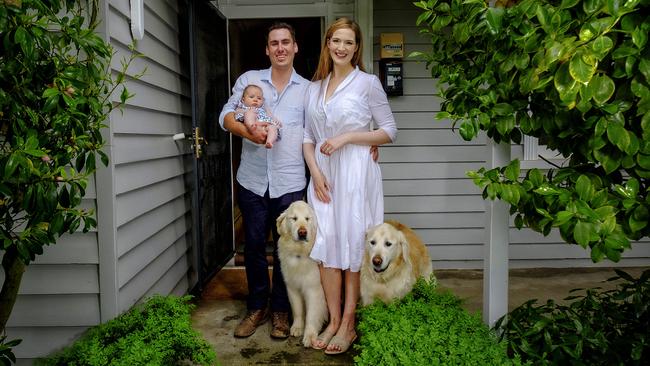Lifestyle refugees are escaping the big smoke for regional air
Experts welcome the Coalition’s push to entice migrants to the regions to reduce capital city congestion | PODCAST

The great Australian dream to own a house with a backyard could drive renewed growth in the nation’s regions as families seek an escape from increasingly crowded cities for a tree change on the metropolitan fringe.
Speaking on the latest episode of property podcast On The Fence — which delves into the pros and cons of country and urban living — demographer Bernard Salt says while cities are becoming increasingly crowded, regional areas welcome growth.
“I travel around the regions quite a lot and I’ve yet to meet a regional community, other than perhaps a place like Byron Bay, that is sensitive to greater population growth,” he said.
Elizabeth Aitken and her husband Klynton, who owns a brick business in Stawell, moved to Ballarat from Melbourne three months ago.
Affordability and lifestyle were the two biggest factors in their decision, and their wanting to raise their children away from the big smoke. “We had to think about where we could raise a child, and in north Melbourne where I’ve been living, there’s been a lot of property development, it’s very crowded, there’s a lot of pollution,” Ms Aitken said.
Danni Hunter, Victorian chief executive of the Urban Development Institute of Australia, who also features on the podcast, said a trend was emerging.
“A lot of people favour the tree-change in Victoria over the suburb lifestyle,” she said.
“It’s because of the digital connection, because of transport infrastructure put out to those areas and because our cities really are quite congested.”
Ms Aitken, a partner at a Melbourne law firm, plans to commute three days a week to work once she returns from maternity leave next year. “We have access to good quality schools and healthcare in Ballarat, and entertainment, a quite attractive historical backdrop,” she said.
“We know numerous people living dual lives, in the city during the week and country on the weekend.”
For others, what represents a dream home is “changing”, with smaller becoming better.
Ms Hunter said density would “grow stronger … and that’s really good for the diversity of our cities, our suburbs and our population. People want to live in apartments. People want to downsize to townhouses,” she said.
“Density in particular is making some really great changes to the way we live and is helping people come together in a community sense.”
Mr Salt said many young people had “different values” and few wanted large homes with a mortgage in any case.
“The homogeneity of Australian society has shifted from mum, dad, four kids to the cosmopolitan diverse community we have today,” he said. “They want greater flexibility, greater fluidity, and the idea of an early life commitment to a mortgage … just doesn’t sit with the vast majority of the millennial generation.”
As people in the cities opted for smaller homes, Mr Salt also backed the government’s push to entice more immigrants into the regions.
In the March budget, the government reduced the permanent migration cap from 190,000 to 160,000 in response to increasing demands for a cut in the rate of immigration. In October, it increased regional skilled visa places from 23,000 to 25,000.
“What we would ask you to do is to spend three or four years in a regional centre. It’s not unreasonable and hopefully you will then put down roots, see the wonderful quality of life you can live in regional Australia and want to stay there,” Mr Salt said.
Additional reporting: Mackenzie Scott




To join the conversation, please log in. Don't have an account? Register
Join the conversation, you are commenting as Logout